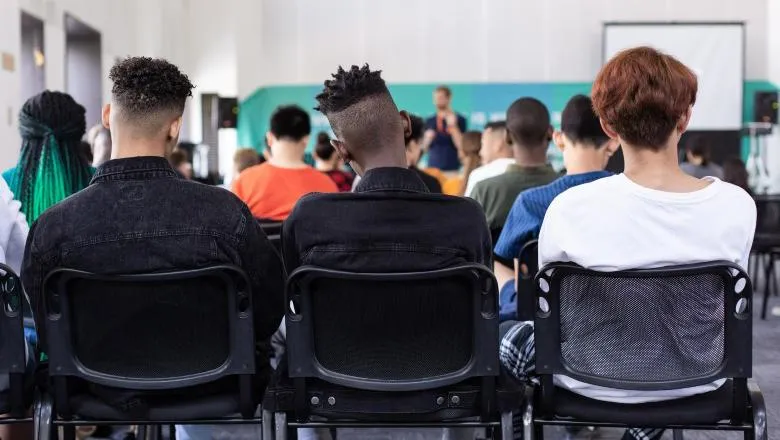24 November 2022
If at first...
Michael Sanders
We should accept the disappointing findings of a study into racial attainment gaps at university and press on to find what really works

What do powered flight, moon landings, blood transfusions, discovering radium, organ transplants and vaccines have in common? The answer, as you will probably have guessed, is that they are now a part of our lives, and have transformed the world we live in – either by changing our understanding of the universe, or by having saved countless lives. The other answer, however, is that they were not immediately successful on their first attempt – the Wright brothers famously took dozens of efforts to get their plane to fly, for example.
As such, these are stories of persistence. They are stories where individuals and groups recognised that the end goal was important, believed it could be achieved, failed, and carried on anyway. Not carrying on regardless, and bloodymindedly trying the same thing over and over again – but learning from the things that didn’t work, adapting, and trying again. Viewed from where we are now, it is easy to see that blood types stood in the way of the first successful transfusion, but at the time this was yet to be discovered.
It is important to keep this mind as today TASO – the what works centre for higher education access and participation publishes what will be disappointing findings to many. Their study, carried out over the last couple of years, looks at the effects of attempts to reform curricula in order to reduce racial attainment gaps at university. In two institutions, impact evaluations of these efforts have produced inconclusive findings, but they do not overall suggest that the interventions were effective at reducing these attainment gaps, which can be substantial.
As I have written elsewhere, it is important to accept the findings of this kind of research. There is little value in protesting or ignoring what has been learned, or denigrating the hard work of the evaluators. As much as I would have loved to have seen positive effects, we must accept what has been found and move on.
But moving on does not mean giving up – far from it. It is tempting to fall into the pattern of thought that because our first (or most recent) attempt to solve the problem has failed, we were wrong to have attempted it – that the problem is, in fact, insolvable. When we’re pursuing something for our own glory, then sure, give up whenever you fancy it. But when you’re trying to make the world a better place, and reduce inequality and injustice, it’s little short of arrogant to think something can’t be solved just because you haven’t solved it on the first go. You are not so brilliant, sorry.
Of course, it could be that the problem can be solved, and that the particular class of solution that you’re pursuing doesn’t work either. It is possible, for example, that curriculum reform, in any form, will not reduce the racial attainment gap in higher education. This is similar to the class of attempt at powered flight that includes planes with wings that flap like a bird’s. If this were the case for curriculum reform, it would not necessarily undermine the argument for reform per se – which could be seen as a part of making higher education more accessible and inclusive to students no matter their background, and hence a moral imperative, even in the absence of any quantifiable benefit to educational attainment.
Moral arguments are less within my comfort zone than statistical ones, however. Here, we do not yet have an answer. What these new studies provide is two data points – two examples of prototypes which seem not to have worked. It is too soon to tell if these are two steps along a path with no end, or two steps towards powered flight and more equitable education. To find out which path we are on, we must learn what we can, take heart, and press on.
Michael Sanders is a Professor of Public Policy at the Policy Institute, King’s College London, and Academic Lead for TASO. Any views expressed here at his own.
